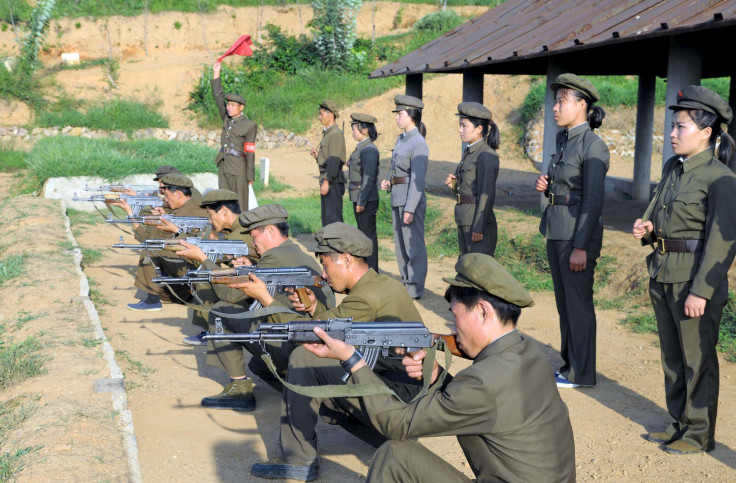North and South Korea ease tensions, end ‘quasi state of war’

North and South Korea, after two days of endless negotiations, have finally decided to put an end to the dispute that rose with the exchange of artillery fire, dividing the peninsula into a state of heightened military tension.
North Korea has extended their sympathy towards the South Korean soldiers who were injured in a landmine incident while Seoul has conceded to stop anti-Pyongyang propaganda broadcasts on Tuesday morning.
In a joint statement provided by both the nations, North Korea said that it has decided to call off the "semi" state of war it had declared and focusing on ways to improve their ties. While appearing on TV, Kim Kwan-jin, national security adviser to South Korean President Park Geun-hye, said that an apology had to be made in case of the landmine provocation. He also promised to work for the betterment of their relationship so as to foil such incidents.
The emergency talks at the Panmunjom truce village on the inter-Korean border began Saturday shortly after a deadline issued by Pyongyang expired for Seoul to stop cross-border audio broadcasts into the North or face military attacks.
Earlier Pyongyang has rejected the workers to lay the landmines and even now it has not showed any responsibility towards them. "They both made compromises. South Korea did not get an apology, they got a statement of regret about the injury, which they can spin as an apology," said John Delury of Yonsei University in Seoul.
He believes that channelling issues and building a renewed relationship between the two were imperative. However, “this is hardly going to be easy to implement, but it’s a landmark agreement which lays out a path," Delury added.
Several ways were adopted to solve the animosity between Seoul and Pyongyang, which was reignited last year, yet the 2010 sinking of a South Korean warship, which killed 46 sailors, keeps on echoing through one’s mind. Previously, Pyongyang has denied responsibility.
The recent escalations that took place after landmine explosions in the DMZ left two wounded South Korean soldiers.
"We're going to judge the North by its actions. We welcome this agreement, and are hopeful it leads to decreasing tensions on the peninsula," U.S. State Department spokesman John Kirby told a one of the reporters. He said that it could be dangerous to their hold.
Contact the writer at feedback@ibtimes.com.au, or let us know what you think below.





















